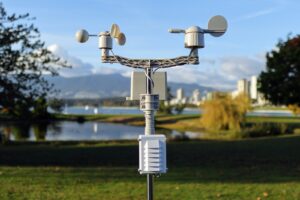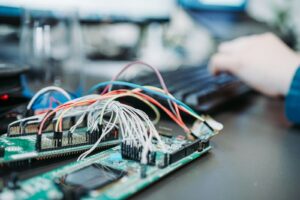The Role of Evolving Connectivity Technologies in Enhancing IoT Scalability and Adaptability
How the Evolution of IoT Connectivity Technologies Shapes Scalability
The rapid evolution of IoT connectivity technologies is fundamentally reshaping the scalability and adaptability of IoT systems across various industries. As businesses in Saudi Arabia and the UAE continue to embrace digital transformation, the need for scalable IoT solutions that can adapt to changing technological landscapes becomes increasingly critical. Connectivity technologies, such as 5G, Low-Power Wide-Area Networks (LPWAN), and edge computing, are at the forefront of this evolution, enabling IoT systems to handle more data, connect more devices, and operate more efficiently than ever before.
In regions like Riyadh and Dubai, where smart cities and advanced infrastructure projects are gaining momentum, the ability to scale IoT systems quickly and efficiently is essential for sustaining growth and innovation. The introduction of 5G technology, for instance, has opened new avenues for IoT scalability by providing faster data transfer rates, lower latency, and the capacity to support a massive number of connected devices simultaneously. This advancement not only enhances the performance of existing IoT applications but also paves the way for new, more complex use cases that were previously unattainable due to technological limitations.
Moreover, the adoption of LPWAN technologies, such as LoRaWAN and NB-IoT, is further driving the scalability of IoT systems by offering cost-effective, long-range connectivity solutions that consume minimal power. These technologies are particularly valuable in industries like agriculture, logistics, and environmental monitoring, where IoT devices are often deployed in remote locations and need to operate for extended periods without frequent maintenance. In Saudi Arabia and the UAE, where vast landscapes and diverse environmental conditions present unique challenges, LPWAN is enabling the deployment of scalable IoT solutions that can adapt to the specific needs of different sectors, thereby contributing to the overall sustainability and success of IoT projects.
Adapting IoT Systems to New Connectivity Technologies
As connectivity technologies continue to evolve, the adaptability of IoT systems becomes a key factor in ensuring their long-term success. The ability to integrate new connectivity standards and protocols into existing IoT infrastructures is crucial for businesses looking to stay competitive in a rapidly changing market. The shift towards edge computing, for example, represents a significant advancement in IoT adaptability, allowing data processing to occur closer to the source rather than relying solely on centralized cloud servers. This not only reduces latency but also enhances the flexibility and responsiveness of IoT systems, making them more resilient to network disruptions and capable of supporting real-time applications.
In cities like Riyadh and Dubai, where smart city initiatives are heavily reliant on the seamless integration of IoT devices and systems, the adaptability of these systems to new connectivity technologies is essential for maintaining operational efficiency and delivering high-quality services to residents. The integration of 5G and edge computing, for instance, is enabling more dynamic and responsive IoT solutions that can adapt to the evolving needs of urban environments, from traffic management and energy distribution to public safety and environmental monitoring.
Furthermore, the evolution of connectivity technologies is also driving the development of more secure and reliable IoT systems. As the number of connected devices continues to grow, so too does the potential for cyber threats and security breaches. The latest connectivity standards, such as 5G and advanced encryption protocols, are designed to address these challenges by providing enhanced security features that protect data integrity and ensure the privacy of users. For businesses in Saudi Arabia and the UAE, where cybersecurity is a top priority, the ability to adapt IoT systems to incorporate these advanced security measures is critical for safeguarding sensitive information and maintaining customer trust.
Conclusion: Embracing the Future of IoT Connectivity
The evolution of IoT connectivity technologies is playing a pivotal role in shaping the future of IoT systems, particularly in terms of scalability and adaptability. As businesses in Saudi Arabia, the UAE, Riyadh, and Dubai continue to invest in digital transformation and smart infrastructure, the ability to leverage the latest connectivity advancements will be crucial for achieving long-term success. By embracing technologies like 5G, LPWAN, and edge computing, organizations can enhance the scalability of their IoT solutions, ensuring that they can grow and evolve in line with changing market demands and technological trends.
Moreover, the adaptability of IoT systems to new connectivity standards is essential for maintaining their relevance and effectiveness in an increasingly competitive landscape. By integrating the latest connectivity technologies, businesses can not only improve the performance and reliability of their IoT solutions but also enhance their security and resilience against potential threats. As the IoT ecosystem continues to expand, the evolution of connectivity technologies will remain a key driver of innovation, enabling the development of more sophisticated and scalable IoT systems that can meet the diverse needs of industries across the globe.
In conclusion, the future of IoT lies in the continued evolution of connectivity technologies and the ability of businesses to adapt to these changes. By staying at the forefront of technological advancements and investing in scalable, adaptable IoT solutions, organizations in Saudi Arabia, the UAE, and beyond can secure their position as leaders in the digital age, driving innovation and success in a rapidly changing world.
—
#IoTConnectivity, #Scalability, #Adaptability, #SaudiArabiaTech, #UAEInnovation, #RiyadhBusiness, #DubaiTech, #IoTSystems, #ModernTechnology













